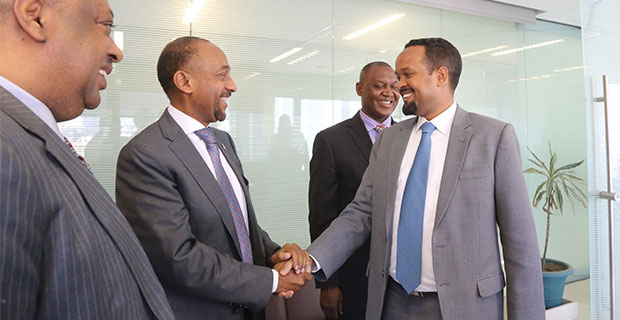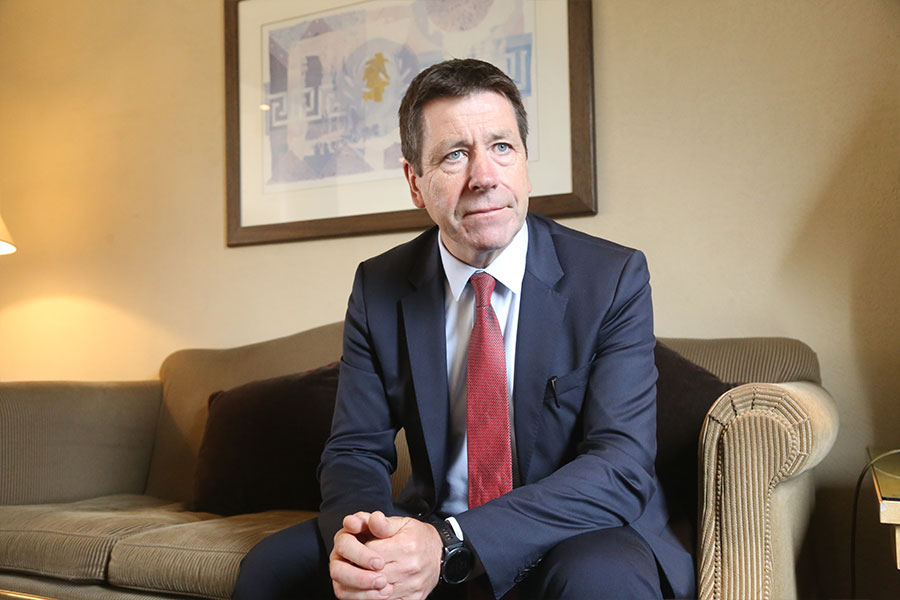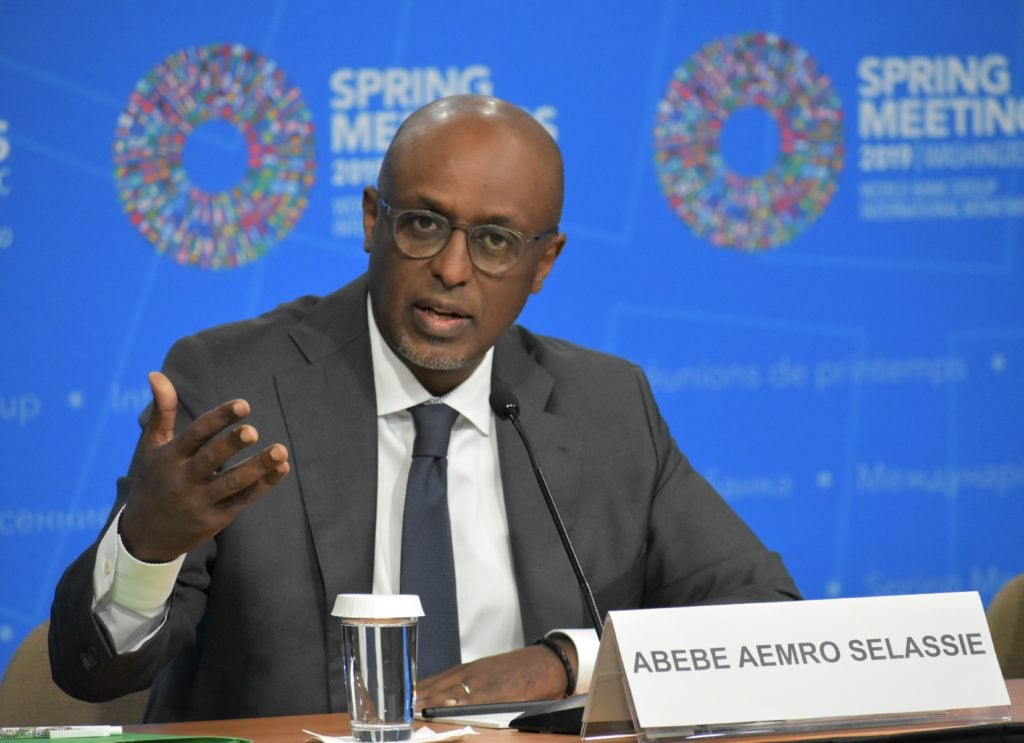
Editorial | Oct 23,2021
Nov 27 , 2018
By TEMESGEN MULUGETA ( FORTUNE STAFF WRITER )
 Ahmed Shide (right), minister of Finance, Gabriel Negatu (middle), the African Development Bank’s director general for the eastern Africa region, and Ademasu Nebebe (left), state minister, of Finance, shake hands on the grant agreement.
Ahmed Shide (right), minister of Finance, Gabriel Negatu (middle), the African Development Bank’s director general for the eastern Africa region, and Ademasu Nebebe (left), state minister, of Finance, shake hands on the grant agreement. Ethiopia signed a grant agreement for 123 million dollars with the African Development Bank (AfDB) to be used in support of basic services.
The agreement was signed at the Ministry of Finance between Finance Minister Ahmed Shide and Gabriel Negatu, regional director of AfDB, on Friday, November 23, 2018.
The grant will be disbursed in two phases to regional governments and weredas and will be administered under a blocked account.
The areas of focus for the support are health, education, water and sanitation services. The grant is intended to supplement the Basic Services Transformation Program, which has been under implementation in Ethiopia for the past three years.
“The government will continue to work toward enhanced accountability and transparency in public service delivery, thereby strengthening the effectiveness of the program,” said Ahmed.
This support brings the Bank’s total commitment to Ethiopia to 1.74 billion dollars, which has been channelled to energy, transport, water supply and sanitation, agriculture, governance and the private sector.
A great deal of the multilateral development finance institution’s operations across the continent is dedicated to improving the standard of living, increasing accessibility of electricity and industrialisation.
In the same week, a concessional loan agreement amounting to 30 million Euros was also signed with the European Investment Bank, while another grant agreement was signed with the Danish government for 150 million dollars. Ahmed signed the former agreement with Werner Hoyer (PhD), president of the European Investment Bank.
The agreement with the EIB is aimed at supporting the Women Entrepreneurship Development Project by providing access to financial services and loans for micro and small-scale enterprises, while the grant by the Danish government will be utilised for the implementation of the Danish Country Programme that runs for half a decade.
The latter will cover the improvement of value chains in agriculture, food security, nutrition and climate resilience.
Getachew Yirga, an assistant professor at Bahir Dar University’s College of Business & Economics, believes that this financial support is coming at the right time as the country requires a capital injection.
“The recent political reform has played a part in influencing their support and working even more closely with the government,” he says. “The support can make a difference if implemented properly.”
In 2018, the World Bank pledged 3.3 billion dollars to Ethiopia, which is over three times higher than the Bank’s commitment the previous fiscal year, while the government targeted this fiscal year to cover over 19 billion Br of the budget from external assistance and almost 33 billion Br of its budget from loans.
PUBLISHED ON
Nov 27,2018 [ VOL
19 , NO
970]

Editorial | Oct 23,2021

Radar | Oct 19,2019

Commentaries | Jan 09,2021

Fortune News | Feb 09,2019

Radar | Apr 30,2021

Commentaries | Jul 20,2019

Radar | Apr 17,2021

Addis Fortune | Aug 01,2022

Exclusive Interviews | Apr 13,2019

Radar | Apr 24,2023

Dec 22 , 2024 . By TIZITA SHEWAFERAW
Charged with transforming colossal state-owned enterprises into modern and competitiv...

Aug 18 , 2024 . By AKSAH ITALO
Although predictable Yonas Zerihun's job in the ride-hailing service is not immune to...

Jul 28 , 2024 . By TIZITA SHEWAFERAW
Unhabitual, perhaps too many, Samuel Gebreyohannes, 38, used to occasionally enjoy a couple of beers at breakfast. However, he recently swit...

Jul 13 , 2024 . By AKSAH ITALO
Investors who rely on tractors, trucks, and field vehicles for commuting, transporting commodities, and f...

Oct 25 , 2025
The regulatory machinery is on overdrive. In only two years, no fewer than 35 new pro...

Oct 18 , 2025
The political establishment, notably the ruling party and its top brass, has become p...

Oct 11 , 2025
Ladislas Farago, a roving Associated Press (AP) correspondent, arrived in Ethiopia in...

Oct 4 , 2025
Eyob Tekalegn (PhD) had been in the Governor's chair for only weeks when, on Septembe...